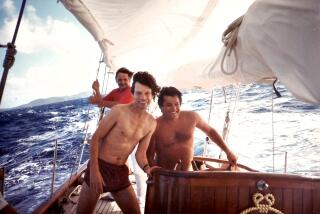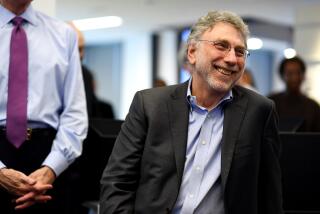Ambrose’s ‘Custer’ Comes Under Attack
Just days after admitting his latest bestseller includes passages copied from another historian’s work, author Stephen Ambrose is being cited again for a similar trespass in an earlier work. Forbes .com is reporting that Ambrose’s “Crazy Horse and Custer” contains sections similar to Jay Monaghan’s “Custer.”
A spokesperson for Ambrose on Tuesday declined to comment. Anchor Books, which publishes the paperback edition of “Crazy Horse and Custer,” also had no comment.
On Monday, Ambrose acknowledged that his current bestseller, “The Wild Blue,” included passages taken from Thomas Childers’ “Wings of Morning.”
“I failed to put some words and sentences of Dr. Childers’ into quotation marks. I am sorry for this omission and apologize to him,” Ambrose said in a prepared statement. “I will make that change, putting his words into quotation marks, in all future editions of my book.”
Ambrose footnoted Childers in the sections in question but did not acknowledge quoting directly from the book. Both books are about World War II bomber pilots.
“Crazy Horse and Custer” apparently follows a similar pattern. Ambrose credits “Custer” as a source, but fails to use quotation marks for passages close to the original. Ambrose’s book came out in 1975, Monaghan’s in 1955. Monaghan died in 1980.
Here is Monaghan’s description of Gen. Custer’s return to the U.S. Military Academy after a furlough:
“On August 28, 1859, Custer returned to West Point. Cadet James Barroll Washington, a great-great-grandnephew of George Washington, entered that year. He remembered hearing the crowd shout, ‘Here comes Custer!’ The name meant nothing to him, but he turned, and saw a slim, immature lad with unmilitary figure, slightly rounded shoulders, and gangling walk.”
Here is Ambrose’s version:
“When he returned to West Point, Cadet James B. Washington, a relative of George Washington, remembered hearing the crowd shout, ‘Here comes Custer!’ The name meant nothing to Washington, who was just entering the Academy, but he turned and saw a slim, immature lad with unmilitary figure, slightly rounded shoulders, and gangling walk, surrounded by back-slapping, laughing friends.”
Many fellow historians believe Ambrose might have so internalized Monaghan’s text he unconsciously replicated it, or that the problem originates with his team of research assistants. Ambrose is also highly prolific, increasing the chance of error. He is the author of more than 20 books, including such bestsellers as “Undaunted Courage” and “Nothing Like It in the World.”
Joseph Ellis, a historian suspended by Mount Holyoke College in South Hadley, Mass., for lying to his students about being a Vietnam combat veteran, said mistakes are inevitable over a long career.
Ambrose has been criticized for factual errors. Last year, he came out with a young-adult title called “The Good Fight: How World War II Was Won.” It included a map of Pearl Harbor showing that the Japanese invasion occurred on Dec. 7, 1943, two years after the actual date.
More to Read
Sign up for our Book Club newsletter
Get the latest news, events and more from the Los Angeles Times Book Club, and help us get L.A. reading and talking.
You may occasionally receive promotional content from the Los Angeles Times.






